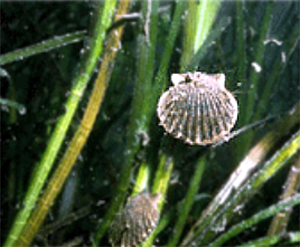Water Quality and Wastewater Infrastructure
The coastal waters of Cape Cod provide a rich habitat for many important fish and shellfish. In recent years, the quality of many of our coastal water bodies has deteriorated due to an excess supply of nitrogen containing compounds (reactive nitrogen). This excess nitrogen fuels the rapid growth of some species of phytoplankton, seaweed and algae. All this growth depletes the supply of dissolved oxygen, which suffocates plants including eelgrass, a submerged plant that provides ideal habitat for bay scallops and other coastal species. Oxygen is further depleted as the dead plants decompose. If enough oxygen is depleted large scale fish kills also occur.
 A large portion (roughly 80 percent) of the excess nitrogen in our coastal waters comes from on-site septic systems. Title 5 septic systems were designed to remove bacteria and viruses, but not nutrients like nitrogen or phosphorous. In order to remedy this problem, the Cape must invest in wastewater treatment systems that remove nitrogen.
A large portion (roughly 80 percent) of the excess nitrogen in our coastal waters comes from on-site septic systems. Title 5 septic systems were designed to remove bacteria and viruses, but not nutrients like nitrogen or phosphorous. In order to remedy this problem, the Cape must invest in wastewater treatment systems that remove nitrogen.
In the fall of 2012, APCC convened a summit of Cape Cod’s land trusts, water quality organizations and other federally tax exempt environmental nonprofit groups to discuss the region-wide problem of wastewater.
This first-of-its-kind summit brought together an impressive 36 organizations from across the Cape with the goal of reaching consensus on a set of core principles centered around the impacts of wastewater on Cape Cod’s water resources. Attendees drafted a Cape Cod Environmental Summit Consensus Statement that identified wastewater as the region’s number one environmental priority, and which said that immediate action on the part of government, business, and every citizen was needed to find effective solutions to the problem.
The consensus statement is in the process of being ratified by the participating organizations.
Summit participants agreed on the following fundamental findings:
- Nutrients and wastewater threaten the quality of Cape Cod’s groundwater, ponds and coastal waters.
- There is technically sound scientific evidence of nutrient enrichment in our groundwater, coastal waters and ponds.
- Excess nutrients from wastewater and other sources are contributing to the decline of water quality on Cape Cod.
The consensus statement includes a 10-point set of principles for addressing the challenge. Included among the principles is acknowledgement that there is no single wastewater management solution for all situations. In addition to laying out the need to identify and fund necessary wastewater infrastructure, the statement also encourages communities to adopt a holistic approach that takes into account land use practices, open space preservation, growth management, zoning, stormwater management, drinking water protection, wastewater management, and water quality enhancement.
The statement concludes with the following: We the undersigned organizations declare the need to address wastewater and nutrient loading of Cape Cod’s groundwater, ponds and coastal waters caused by human activity and waste as the number one environmental priority of the region. Each organization is committed to advancing the principles contained herein and making clean water a reality. We recognize that each organization, business owner, homeowner, citizen, and visitor, not only on Cape Cod but also throughout Massachusetts, benefits from clean water on Cape Cod, and we believe that each should bear a fair and equitable portion of the cost of necessary solutions. Cape Cod is a valuable local, state and national resource.
Click HERE to download the complete text of the Cape Cod Environmental Summit Consensus Statement.
APCC, the Cape Cod Business Roundtable and the Cape Cod Water Protection Collaborative commissioned a comparative study of costs of wastewater infrastructure to help communities as they embark on wastewater infrastructure planning. The study, an executive summary and a PowerPoint presentation are available for download below.
Urge for Increased State Role on Wastewater
Regional Wastewater Management Plan
Cape Cod Wastewater Costs – April 2010
Cape Cod Wastewater Cost Executive Summary
Cape Cod Wastewater Cost Study Slides
